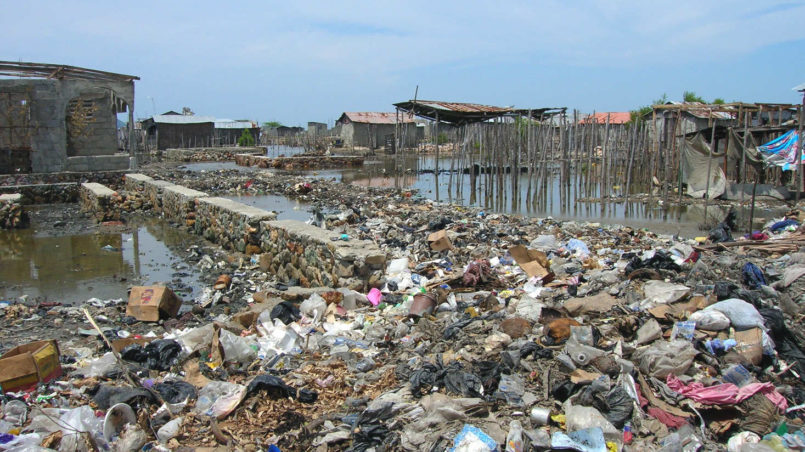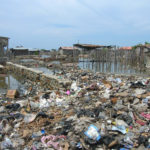The Paradox of Private Hygiene and Public Uncleanliness in India

There is little doubt that India stands out to the world as a very unclean country. Most people visiting India are usually amazed by the way litter, garbage and pollution have such a dominating presence across India. Thus they take back with them the image of a uniquely unclean India and so maybe Indians. And very few Indians would dispute the fact that such ubiquity of filth is unique to India.
It is a fact that the level of pollution in India is extremely high. And the contribution to such levels of pollution is indeed the work of Indians. The quality of air and water in many places is horrendous. Roads, streets, rivers, lakes, beaches, and almost every nook and corner in India seem to be littered with garbage and plastic. Only a selected few places in the cities or towns can be claimed to be really clean and free of garbage and litter. Everyone in India is aware of this state of affairs and thus, at times, it might seem to most people that Indians have become innocuous to the filth surrounding them.
Yes, at times I did feel embarrassed when many of my friends from other countries expressed their disgust at the state of affairs when it comes to cleanliness in India. And to be very honest, at times I wished I had some riposte. But I have never been in a position to counter them as it is a fact that a huge proportion of the population in India still defecates in the open. In fact, urinating in the open is still rampant. The stench of urine from walls against which men have “relieved” themselves is not an exaggeration and almost every Indian who has some sense of hygiene finds such habits ridiculously frustrating. Because, as Indians, we have to deal with it every now and then. Who likes to live with filth all around? We Indians are ourselves extremely disgusted most of the time to find so much of filth and pollution so omnipresent in our country.
Since I myself feel disgusted with such unclean conditions everywhere in India, logically, it does not make sense if I feel offended when a person from a developed country, where cleanliness and hygiene are well maintained, expresses his or her horror and abhorrence. It is obvious they would criticize the situation in India. But to be very honest, I do feel offended.
I have been thinking about such paradoxical feelings that arise in my mind when I encounter such vilification of India as a filthy and a uniquely unclean country. For sure, such feelings do not emanate from any kind of extreme patriotism. I am deeply attached to my country and its people but I have also always been upfront in criticising every derogatory social practice prevalent in my country.
Perhaps I feel offended because being an insider so to speak, I know how much importance is attributed to cleanliness in Indian households. In fact, I grew up believing that Indians follow very strict rules of “Shauch”, i.e. hygiene and cleanliness. Personal hygiene is such an important issue in Indian households that they tend to believe that their practices related to hygiene are much superior to those of people from other western countries. And here, you might find the paradox and a shock. A country which is viewed by foreigners as utterly unclean is actually inhabited by people who are obsessed with cleanliness and hygiene in their personal lives.
When it comes to diversity, there are people practicing many different religions in India. But, the majority of the population are Hindus. I would like to mention that, although Hinduism is believed to be a religion, it is, however, to be understood as a “way of life” rather than as a religion per se. This “way of life” finds reflection in the lives of people who practise other religions in India as well. Thus one can claim that the habits and ways of thinking of all Indians, irrespective of their religious beliefs, have much coherence.
Cleanliness is enforced to a great extent in everyday lives of Hindus, and especially so when it comes to conducting religious practices. Even Indians following other religious faiths like Buddhism, Jainism, Islam, and Christianity also accord much importance to the practice of purification with water and thus it is a very common practice in Indian households. It is interesting to note that hygiene and cleanliness have much to do with religion, and is hardly a secular subject in India.
In most households, women will still not enter the kitchen without having a bath. It might come as a shock to many who think Indians have no sense of hygiene to know that many people in India consider it an important part of personal hygiene to have a bath each and every time they empty their bowels. This is particularly practiced by Hindus. However, it is important to understand at the same time that such practices have their roots in religious chauvinism and eventually gets translated into condescension for those who cannot afford to follow such rituals of hygiene.
However, the intriguing question remains as to how a country which has such strict practices in terms of personal and social hygiene is today synonymous with filth and foul odours? I would like to explore this issue in my next article.
Credits
| Image | Title | Author | License |
|---|---|---|---|
 |
Solid_waste_used_to_build_a_road | Rémi Kaupp | CC BY-SA 3.0 |
